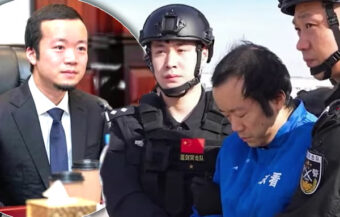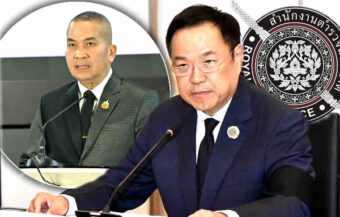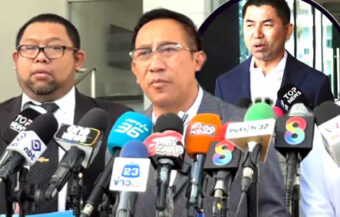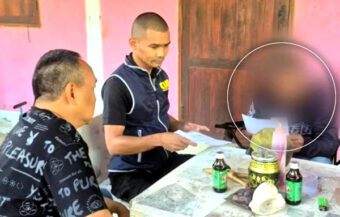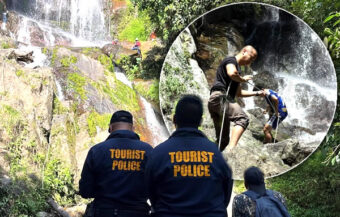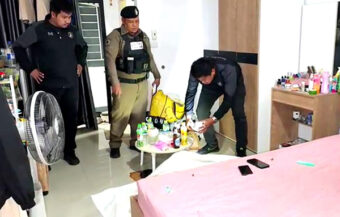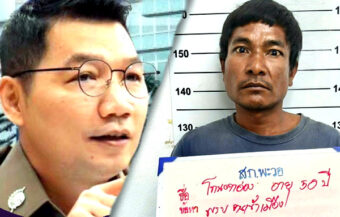Thais in Indonesia are warned to avoid conflict zones as violent riots erupt over huge parliamentary pay hikes. President Prabowo cancels China trip, apologises for police brutality and moves quickly to control unrest across major cities.
Indonesia has erupted into chaos as low-paid workers stage violent protests against a controversial salary increase for lawmakers. President Prabowo Subianto cancelled a planned trip to China on Saturday and faced the nation amid mounting unrest. He issued a rare apology for the heavy-handed police response in key urban centres and immediately scrapped the pay hikes and perks that sparked public outrage. Meanwhile, the Royal Thai Embassy in Jakarta is mobilising to protect vulnerable Thai citizens and is warning all nationals to avoid conflict zones as demonstrations continue to rage across the country.
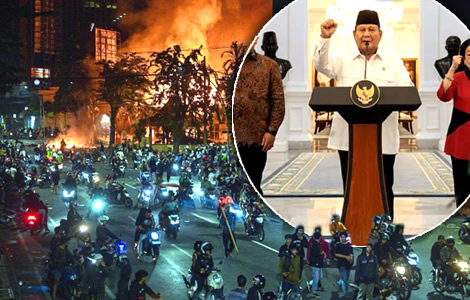
The Royal Thai Embassy in Jakarta has issued an urgent alert to Thai nationals amid growing unrest across Indonesia. The advisory was released late Sunday, August 31, 2025, through the Embassy’s official Facebook page, following a dramatic escalation in anti-government protests that have rocked multiple cities.
According to the Embassy, Thai citizens—both tourists and long-term residents—should avoid all protest zones. These include Jakarta, Surabaya, Bandung, Surakarta and Medan. In addition, the Embassy advised everyone to monitor local news closely and comply with safety guidelines issued by Indonesian authorities. Importantly, those in need of urgent help can contact the Embassy 24 hours a day at +62 811 186 253.
Escalating anti-government protests spread across Indonesia. Urgent embassy warnings to Thais
Over the past week, Indonesia has plunged into nationwide protests, many of which have turned violent. While the unrest began over rising discontent with parliamentary perks, it has since exploded into a broader political crisis. Consequently, the situation has become increasingly dangerous.
The flashpoint came after Indonesia’s parliament quietly approved a massive pay bump for lawmakers. A new monthly allowance of 50 million rupiah—roughly $3,030—was added to MP compensation. That amount is nearly ten times Jakarta’s minimum wage. Not surprisingly, the decision infuriated workers and students alike. Demonstrations began almost immediately.
However, the situation deteriorated sharply after the death of 21-year-old Affan Kurniawan, a ride-sharing driver. He was killed when a police vehicle rammed into a group of protesters in Jakarta on Thursday. Video footage of the incident went viral, fueling public anger and sparking solidarity strikes by drivers nationwide.
Violent protests erupt after pay hikes spark outrage and the death of a ride-sharing driver inflames tensions
In response, President Prabowo Subianto offered a public apology. He said he was “shocked and disappointed” by the actions of the police. The national police chief also issued a rare apology. Investigators have since found that seven officers violated professional conduct codes during the protest response. These officers are now under internal review.
Nevertheless, the protests escalated further. Over the weekend, demonstrators clashed with security forces in central Jakarta. Police deployed tear gas, while protesters hurled Molotov cocktails and firecrackers at government buildings. In some cities, protesters overran police compounds.
Meanwhile, in Makassar, an Eastern Indonesian city, protesters stormed and torched the city council building on Friday night. At least three people died in the blaze. In other incidents, looters targeted the homes of senior government officials, including Finance Minister Sri Mulyani Indrawati. Crowds also gathered outside parliament buildings in multiple provinces, setting vehicles ablaze and chanting anti-corruption slogans.
President apologises for police conduct as protests escalate violently across Jakarta and major cities
As a result of the spreading unrest, President Prabowo cancelled a scheduled diplomatic trip to China. Instead, he addressed the nation from the presidential palace in Jakarta. Surrounded by leaders of all major political parties, Prabowo vowed to respond to public anger while preserving order.
Crucially, he announced that many parliamentary perks would be revoked. He ordered reduced allowances, the suspension of overseas trips and stricter penalties for MPs who violate ethical standards. Furthermore, he declared that parties had agreed to remove underperforming or “insensitive” lawmakers from office.
Still, public response to the announcement was lukewarm at best. Student leaders called the measures “symbolic” and insufficient. Muzammil Ihsan, head of Indonesia’s largest student organisation, stated that real reform—not public relations—is needed. He confirmed that further demonstrations are already being organised.
Protesters have broadened their demands well beyond MP salaries. Now, they are calling for increased wages, lower taxes and sweeping anti-corruption laws. Additionally, labour groups want an end to outsourcing and more protection for gig economy workers. Many say the government has failed to address the structural inequalities that sparked the unrest.
Government announces rollback of parliamentary perks while protesters demand broader reforms
Importantly, Prabowo has also ordered police and military forces to take decisive action. He warned that signs of “subversion and terrorism” were emerging. According to him, peaceful protest is protected, but acts of vandalism and looting would not be tolerated. He instructed forces to defend public institutions and prevent further property destruction.
Despite these warnings, new protests erupted on Sunday night. In East Java and Sumatra, thousands marched on government buildings. Protesters blocked roads, set fires, and engaged in running battles with riot police. Public transportation in Jakarta remains heavily disrupted, with many routes suspended indefinitely.
At the same time, rights groups are raising alarms over excessive force. Human rights observers have documented several instances of police brutality.
Videos show officers hitting unarmed protesters and using tear gas in residential areas. Calls are growing for an independent inquiry into the state’s handling of the protests.
Police and military ordered to act decisively as new protests erupt across East Java, Sumatra and Jakarta
So far, the death toll stands at five, with dozens injured and hundreds arrested. The number is expected to rise as protests continue. Hospitals in Jakarta and Surabaya report treating victims of blunt force trauma, burns and tear gas exposure. Some journalists covering the unrest have also reported being harassed or detained.
In addition to street protests, civil society groups are demanding face-to-face dialogue. In response, Prabowo has ordered parliament to open direct talks with student unions, labour leaders and NGOs.
He instructed all ministries to accept reform proposals and commit to follow-up action. According to him, the government must “listen, not lecture.”
Nevertheless, critics remain sceptical. Although Prabowo campaigned on promises of stability and economic revival, many remember his military past. He has long been accused of human rights violations during Indonesia’s authoritarian era. Some fear he may resort to harsh crackdowns rather than real reform.
Death toll rises as protests continue while critics question Prabowo’s approach and call for genuine reforms
International observers are watching closely. Regional analysts say the crisis represents the biggest political test of Prabowo’s presidency to date. How he handles the situation could define his legacy—and shape Indonesia’s democratic norms for years ahead.
Meanwhile, the Royal Thai Embassy’s warning stands. Thai nationals are urged to stay indoors, avoid large gatherings and monitor all updates. As tensions flare, caution remains essential. The Embassy is maintaining direct contact with Thai citizens in high-risk areas.
Indonesia drives off another Chinese vessel as it explores waters within its exclusive economic zone
At this time, Indonesia is facing a sudden crisis. Although the government has made concessions, public anger runs deep. Protesters say they are not just fighting perks—they are fighting for justice, fairness and change. For now, their message is clear: the streets will not yet fall silent.
Join the Thai News forum, follow Thai Examiner on Facebook here
Receive all our stories as they come out on Telegram here
Follow Thai Examiner here
Further reading:
Incoming Japanese PM, a hawk on China, plans an Asian NATO which will raise questions for Thailand
Maris at BRICS Summit in Russia insists unaligned Thailand is friends with all despite 1954 US pact
Thai Defence Minister speaks of a ‘golden land’ seeking to act only for peace in the Indo-Pacific
China’s Embassy calls on Thai media to censor its coverage of Taiwan to protect relationships
War with China is a rising spectre that must be confronted as US General predicts conflict by 2025
Bad news from Beijing with Xi’s rise, the prospect of war and a divided world have greatly grown





